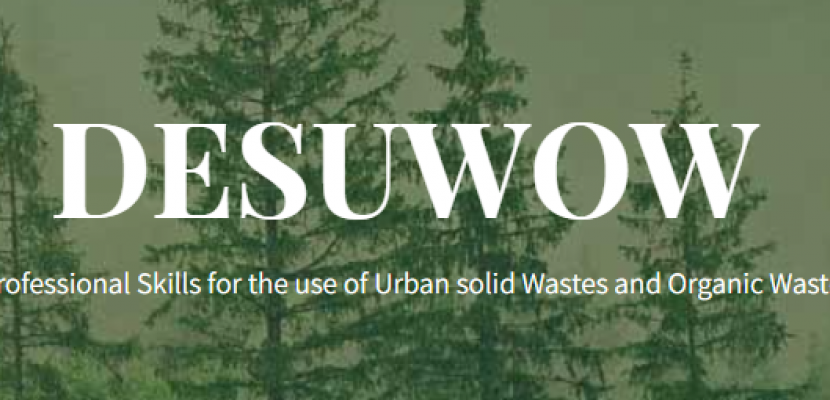
DESUWOW Project

About this good practice
In line with the rapidly growing population, the demand for energy and waste disposal is growing day by day. To overcome waste disposal and greenhouse gas emissions, the only solution is alternative energy production from biomass, agricultural and organic fraction from municipal solid waste (MSW). Biomass energy production can create new employment opportunities, increase incomes and support rural development. In 2012 Europe’s biomass energy sectors generated a total turnover of at least €33 billion and employed more than 374,800 people. The EU’s biomass energy sector is a major contributor to the EU’s energy policy.
This project has been developed with the following objectives:
1- Promoting innovation, entrepreneurship, and employment in rural areas.
2- Supporting the improvement of the quality of life in rural areas and reducing migration.
3- Piloting and adopting a European VET system from renewable energy sources and biomass.
4- Analyzing the usefulness of this VET system for biomass energy, the agricultural sector, cooperation activities, “green” employment related to waste management in agriculture.
5- Developing new professional skills related to biomass energy.
6- Awareness-raising and transfer of innovation for the re-use of waste in the EU.
7- Promoting the EU’s Renewable Energy Systems demands.
Resources needed
1- Experienced managers and administrative staff.
2- Development of e-platform.
3- Expertise in the preparation of a handbook and publication of papers.
4- Funding (in DESUWOW's case the partners used an Erasmus + grant)
Evidence of success
In numbers, the e-platform of the project will attract 3000 users; members of the consortium will offer at least two targeted workshops each year, with 40 participants each. An attractive handbook will be published (100 copies in each partner language, 500 copies in total at the beginning) and the universities involved will publish their research papers (2 per year). – Networking (we would like to invite as many people from the target group in Europe as possible to our web platform).
Potential for learning or transfer
Transfer potential is greatly linked with the project's dissemination efforts:
1- Extending the effects of WASTE and RUBIGAS results dissemination to other European countries.
2- A national dissemination and multiplier event organized by each partner in each partner country.
3- Final dissemination workshops organized in Turkey with project partners and 2 stakeholders from each partner.
4- Dissemination kit (leaflet, poster, roll-up...).
Moreover, thanks to the handbook being developed and all the information published through papers and website contents, there is great learning potential and easy understanding of the initiative.
Further information
Website
Good practice owner
You can contact the good practice owner below for more detailed information.
Across Atlantiic Development Ltd.

